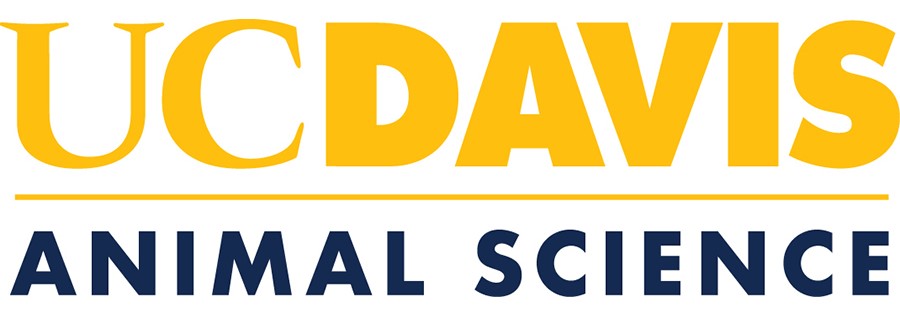
UNIVERSITY OF CALIFORNIA, DAVIS
NAME OF MEAT/ANIMAL SCIENCE PROGRAM: DEPARTMENT OF ANIMAL SCIENCE
DEPARTMENT CHAIR: ANNE TODGHAM
The entent at the University of California-Davis (UCD) has a well-earned reputation for excellence. It consistently ranks among the best animal science programs in the United States and is recognized for its emphasis on cutting-edge research, distinguished faculty, and advanced facilities. The department offers undergraduate majors in animal science and animal science and management, and is committed to providing students with a comprehensive education in animal science and related fields. The curriculum is diverse, offering specializations in various animal species such as livestock and dairy, equine science, laboratory animals, companion and captive animals, aquatic animals, avian and poultry science, as well as disciplines such as animal behavior, biochemistry, genetics, nutrition, and physiology. With the growth of the new meat science program, now students have the option of specializing in meat science as well.
The meat science program at UCD features a full-functioning meat lab facility, as well as a strong meat science research lab. The meat lab is housed within the Cole facility of the Department of Animal Science, and equipped with the latest technology and equipment for students to gain hands-on experience in meat science. This 5,000-square-foot facility is a federally inspected meat processing plant located on the UC-Davis campus. It is the only facility in the UC system that is approved by the USDA to harvest animals and collect different kinds of tissues and biological samples for teaching and research purposes. It contains two holding pens, a multi-species kill floor, carcass coolers, a processing room, a cutting room, an analytical lab, a classroom and freezers.
The annual production level at the Meat Laboratory is approximately 600-800 total head of all four red meat species, which includes beef, hogs, sheep and goats that are all raised at UCD. The meat lab manager, Caleb Sehnert, has worked at the lab for almost 15 years, teaching students how to humanely slaughter and process animals for retail sales, as well as assisting with various research projects. The meat science research lab, as known as the Meat Quality and Safety Laboratory, was established by Dr. Crystal Yang when she started the faculty position as an assistant professor in 2017. The research lab mainly focuses on the evaluation of the effect of any pre- and post-harvest strategies on meat quality (shelf life, sensory attributes) and meat safety (foodborne pathogen and antimicrobial resistance) using traditional meat science methods and novel metagenomic approaches combined with next-generation sequencing.
Currently, the program offers five undergraduate courses centered around meat science at UCD. Four of these courses, including The Principles of Meat Science (ANS 120) and its accompanying lab (ANS 120L), HACCP (Hazard Analysis and Critical Control Points) and Meat Safety (ANS 113; FQ; odd years), Meat Quality and Safety Laboratory (ANS 138; FQ; even year), are taught exclusively by Dr. Yang. The Animal Management Practices - Meat course (ANS 49K; offered every quarter) is taught by Caleb Sehnert.
These courses are designed to provide advanced undergraduate students with a comprehensive understanding of the basic principles involved in the science, technology, and business of processing and marketing muscle-based foods, as well as hands-on experience in evaluating meat quality and safety. Students learn a variety of skills, including animal slaughtering, carcass fabrication, processing meat, conducting trained and consumer taste panels, performing proximate analysis, detecting foodborne pathogens, and determining meat shelf life. These courses have also sparked students' interest in meat science and motivated them to deepen their involvement in this field from both academic and career perspectives. In 2019, five students were encouraged to form the first Meat Science Quiz Bowl Team in UC- Davis history after they took the two main meat science courses. The team traveled to Colorado and competed with 27 teams from other universities at the American Meat Science Association 72nd in 2019 and the 73rd RMC in 2020 remotely.
The meat science research program and the meat lab have collaborated to involve students in various meat-related activities and events. Every year, they organize the Meat Judging Contest on the Annual Agriculture and Environmental Science Field Day, inviting around 90-120 FFA and 4-H students to compete. They also take turns with other universities in California to host the annual convention of the California Association of Meat Processors, which provides students with an opportunity to attend educational seminars, participate in the Cured Meats Competition, and visit table-top trade shows. To better educate the local community about where meat comes from and how to safely cook meat, the program organized a new event “Meat Me in Davis” on the annual UCD Picnic Day, engaging thousands of participants in the exhibit. The program has now expanded its collaborations beyond the state. Recently, they partnered with the American Meat Science Association to host the second West Regional Student Leaders Connection Conference, which included a fun charcuterie board contest for student participants.
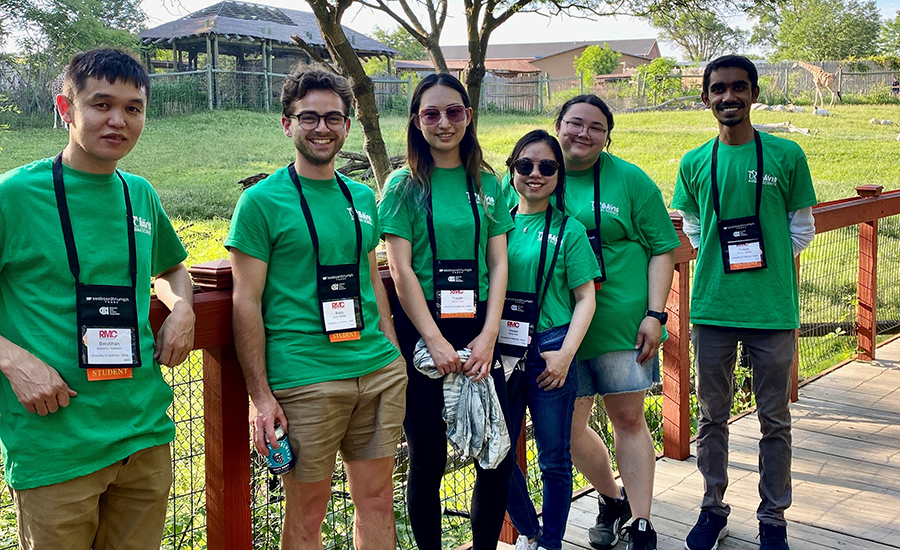
Students who work in Dr. Yang’s research lab also have unique opportunities to conduct both applied meat quality research and basic microbial metagenomics studies to address real-world issues, such as animal welfare, food sustainability, and public and environmental health associated with meat production.
The lab’s study species have expanded beyond traditional livestock and poultry to include seafood, such as large finfish and shrimp. Lab members are encouraged to attend different regional, national and international conferences (Reciprocal Meat Conference, International Association of Food Protection annual conference, etc.), present their research projects, and build networks. Graduate students have provided very positive feedback about the program. Bakytzhan Bolkenove, a fifth-year Ph.D. candidate, and the recipient of Bolashak International Fellowship from Kazakhstan commented on the program, said “The UC-Davis Animal Biology program, renowned for its excellence and multidisciplinary research, along with Dr. Yang's Meat Quality and Safety Lab has been instrumental in shaping my academic career path. The lab's integrated approach and emphasis on meat quality, safety, and antimicrobial resistance have equipped me with essential skills and knowledge. The lab experience and the program's focus on organismal animal biology have offered valuable insights, preparing me for a successful career in academia.”
As a growing research program, Dr. Yang and her students are enthusiastic about collaborating with multidisciplinary scientific communities to address topics related to meat quality and safety. The program offers students opportunities to work with professionals from diverse research backgrounds, including those from the Western Regional Aquaculture Center, Western Center for Agricultural Health and Safety, California Department of Public Health, and the California Department of Food and Agriculture. The program has also built a strong relationship with industrial partners to assist to deliver highly safe, affordable meat with high quality and nutritional value to national and global consumers while reducing the environmental impact and risks to workers in the production chain.
The team believes that these partnerships are essential in driving progress and advancing knowledge in this field. The research program has received very positive feedback from its collaborators. Garth Hoffmann, the president of FREMONTA, has commented on this collaboration “FREMONTA had the pleasure of working with Dr. Yang’s research team on several projects, and we can confidently say that Dr. Yang’s students and faculty are very knowledgeable and professional,” Hoffmann said. “The resources and expertise offered by their team have been invaluable to our company's success. UC-Davis has been helpful in generating data that we have used in our research and development efforts, and we have seen firsthand how this has led to new and improved products. Additionally, we appreciate the support that UC-Davis provides us as we navigate new and changing environments in the industry. We have also benefited from increased recognition through our collaborations with UC-Davis. Dr. Yang’s publications will help to raise awareness of our brand and the innovative work that we are doing in the industry.”

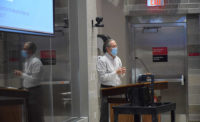
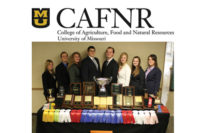
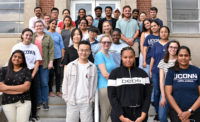
Report Abusive Comment